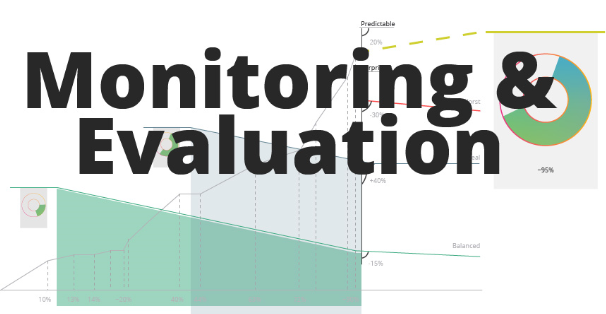Definition, Importance of Monitoring and Evaluation, and Types and Principles of evaluation
Definition of Monitoring
Monitoring can be defined as the continuous or periodic surveillance of program activities to achieve an effective performance. It aims to provide the right people with right information at the right time.
Definition of Evaluation
▶Evaluation is a systematic process of assessing value potentials of a program (Swanson, 1985).
▶Evaluation is an analytical process for systematically and objectively perceiving the relevance efficiency, effectiveness and impact of activities in the light of their objectives (Chada, 1989).
▶Evaluation is the continuous and systematic process of delineating, obtaining and providing useful information for judging decision alternatives.
Importance of monitoring and evaluation
1. It gives evidence on the magnitude of progress.
2. It serves as the basis for improvement of project objectives.
3. It helps to make possible revision or adjustment of project strategies and field operations to suit the everchanging situation.
4. Provide constant feedback on the extent to which project are achieving their goals.
5. Monitor the accessibility of the project to all sectors of the target population.
6. Identify potential problems at an early stage and propose possible solution.
7. Evaluate the extent to which the project is able to achieve its general objectives.
8. Improve project design. 9. Provide guideline for the planning of future project.
Types of evaluation
1. Input evaluation: This is type of evaluation where project personnel evaluates effort and try to measure the quantity as well as quality of available resources, human and material (personnel, money, educational tools, methods or techniques) and of the activities generated by this resources.
2. Formative evaluation/ongoing evaluation: It concentrates on the design and operational component of the project with the end in view of gathering data for assessment and affecting improvements.
3. Summative/Impact/Outcome/Expost evaluation: This is type of evaluation where effects are evaluated while the main concern is to measure the results or outcomes of the effort are made in terms of intended objectives.
Principles of evaluation
1. Purpose of evaluation should be cleared.
2. Purpose of evaluation should be specific and attainable.
3. Evaluator must be unbiased.
4. Evaluation should be done on the basis of reliable information.
5. Appropriate and right techniques and methods should be used for evaluating the program.
6. Evaluation should include assessment and appraisal of both product and the process.
7. Evaluation should be done in the context of an organisation’s philosophy.
You can read more articles about Agricultural Extension
Useful Agricultural Websites
